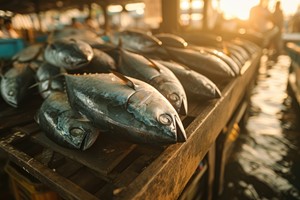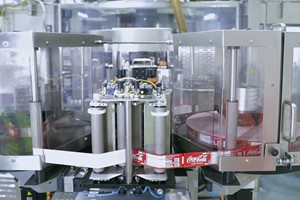In February, European countries witnessed a notable increase in suspicions of food and other fraud cases, according to the latest report released by the European Commission. These suspicions, though not yet confirmed, have spurred discussions among EU member states and could potentially lead to further investigations by authorities.
The data stems from the second monthly report on potential fraud, covering various sectors including food, animal feed, food-contact materials, animal welfare, plant protection products, and veterinary medicine. The information is sourced from multiple platforms including the Alert and Cooperation Network (ACN), Rapid Alert System for Food and Feed (RASFF), Administrative Assistance and Cooperation Network (AAC), and the Agri-Food Fraud Network (FFN).
Fruit and vegetables took the forefront with a significant portion of the suspicions, with 104 out of 318 notices in February. Following closely were dietetic foods, supplements, and fortified foods with 31 alerts, and cereals and bakery products with 20 notices. Notably, ethylene oxide, a chemical of concern, was mentioned thrice in products originating from Thailand, France, and India.
The majority of issues were uncovered through border inspections or market controls, with some brought to light via whistleblower information, media monitoring, consumer complaints, and internal company checks.
Highlighting specific instances, a dozen alerts involved the United States, revealing concerns such as titanium dioxide in pastries, sunset yellow in snacks, L-theanine in energy drinks, and circumventing border controls with groundnuts and cakes. Instances of product tampering and adulteration were also identified, ranging from additives not compliant with EU regulations to the substitution of ingredients in various food products.
Record tampering incidents included the presence of unauthorized substances such as milk proteins in vegan chocolate and pork and poultry DNA in a veggie preparation, highlighting significant breaches in product integrity. Traceability defects were also noted, particularly in shrimp from Ecuador due to repackaging and alteration of best-before dates.
Moreover, several instances involved ingredients not authorized in Europe, particularly in supplements, and residues of pesticides exceeding EU maximum levels, predominantly found in fruit and vegetable products. Document fraud pertaining to plant health certificates in fruit and vegetable imports from Cambodia and Laos was also uncovered.
Additional non-compliance cases included the diversion of non-food grade oil to food in Ukraine and the discovery of salmon unfit for human consumption in Norway.
foodsafetynews.com














